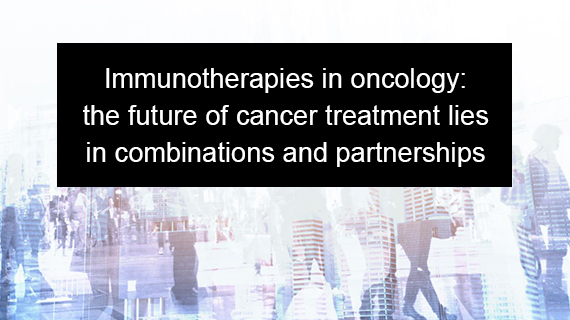Immunotherapies in oncology: the future of cancer treatment lies in combinations and partnerships

What is the scientific rationale behind immunotherapy combinations and how will partnerships, co-marketing and the positioning of drugs play key roles in shaping the competitive landscape in oncology?
With the promise of using the body’s own immune system to fight cancer, immunotherapies have received significant interest from the scientific community, bringing hope to patients across many cancer indications.
The recent development of immunotherapies has led to considerable change in the oncology treatment landscape, driving transformation in the standard of care and yielding lasting responses in patients with metastatic cancers.
While promising, first and second generations of agents have demonstrable weaknesses too, such as:
- Reduced efficacy in a limited subset of patients
- Increased resistance mechanism, where patients do not respond or stop responding
- Toxicity issues, which diminish quality of life for patients.
In order to optimise agent efficacy and overall patient survival, most of these agents are now used in combination. This shift has led to a proliferation of combination studies and approvals, as well as research and commercial partnerships between top pharma companies and small biotechnology companies with innovative product pipelines.
Anne Legendre and Frances Hendry provide their in-depth thoughts on these themes in their full article in the latest edition of Deep Dive: Oncology.
Read their article here.











